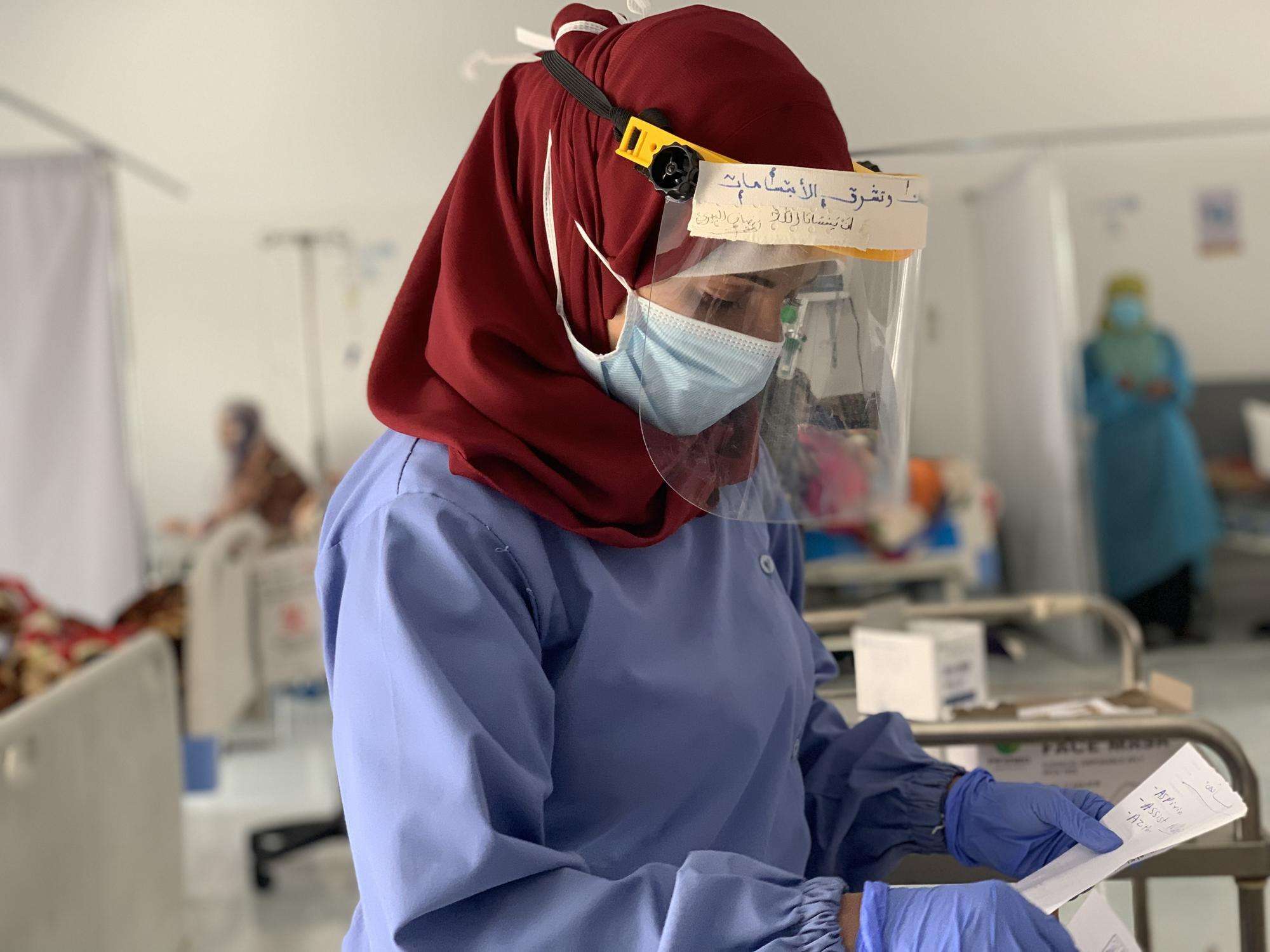As COVID-19 spreads through Yemen, fear of the virus is preventing people from seeking medical care. In the new COVID-19 treatment center at Sheikh Zayed hospital in the Yemeni capital Sana’a, which Doctors Without Borders/Médecins Sans Frontières (MSF) recently started supporting, only half of the 20 beds reserved for patients with moderate COVID-19 symptoms are currently occupied.
According to MSF staff, many people regard hospitals as a source of infection, while some believe sinister rumors about what happens in hospitals for patients with symptoms of COVID-19. Others are fearful of being stigmatized by their communities if they test positive for the disease.
“We are seeing first-hand the detrimental impact of misinformation that is being circulated all over the country, augmenting fear of the virus in society,” said MSF’s Dr. Abdulrahman, who works in Sheikh Zayed hospital. “Hospitals are safe places for patients, and the earlier that patients come to hospital, the better the chances we have to treat their symptoms.”
Fear and stigma
Many patients arriving at Sheikh Zayed hospital’s emergency room are in a critical condition and need immediate breathing support. All six beds are occupied in the intensive care unit, where patients in severe respiratory distress receive around-the-clock care, dependent on oxygen cylinders that need to be changed every three hours.
“We are concerned over what we see in the hospital, but an even greater concern is the patients we don’t see: Those who choose not to seek medical treatment until their condition deteriorates considerably,” said Caroline Ducarme, MSF head of mission in Yemen.
Like a number of other hospitals in the country, Sheikh Zayed was designated by health authorities as a COVID-19 treatment center and shifted from providing maternity services and trauma care to tackling a pandemic that has challenged some of the world’s best-resourced health systems.
Yemen has very limited testing capabilities for COVID-19, so the virus is spreading across the country untraced. Years of war had pushed the country’s health system to the brink before the pandemic. Now it appears that people have lost trust in hospitals and health staff.
Short-staffed hospitals
Recent reports that health workers are at high risk of falling ill with the virus have also raised serious safety concerns among medical staff across the country, leading many to quit their jobs and stay at home, leaving hospitals short-staffed.
“One of the consistent challenges we face is finding skilled medical staff willing to work in a COVID-19 treatment center, where they are needed most,” said Ducarme. “This is despite the use of personal protective equipment and the strict implementation of infection prevention and control measures in this hospital. The departure of health workers is further weakening the Yemeni health system.”
Sheikh Zayed hospital is the second COVID-19 treatment facility in Sana’a supported by MSF, along with Al-Kuwait hospital. Some of MSF’s patients have traveled long distances to get treatment in the capital, suggesting that there are many unmet medical needs elsewhere.
“A number of our patients in Sheikh Zayed hospital come from governorates as far as Taiz and Ad Dhale in search of essential medical care that may be inaccessible in their areas,” said Roger Gutiérrez, MSF’s head of emergencies in Yemen. “The patients we see have the means to travel, but what about those who are seriously ill with no means to travel and no other medical options around?”
More resources are desperately needed in Yemen, both for COVID-19 patients and for those with other health needs. MSF calls on the international community to mobilize resources to help Yemen cope with this crisis, and on Yemeni authorities to facilitate the implementation of lifesaving programs.
“A massive scale-up of the overall health response is required to urgently address the silent needs,” said Ducarme. “Instead of cutting down support at such a critical time, the international community should be mobilizing maximum resources to maintain humanitarian interventions in Yemen, while local authorities must exert all efforts to facilitate the implementation of lifesaving programs and ensure that people can safely access humanitarian aid.”
MSF treats patients with respiratory symptoms in four COVID-19 centers it supports in Sana’a and Aden,




